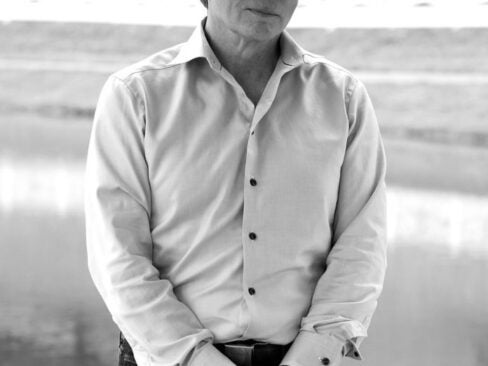
Co-founderSaffronArt
For decades, the art flock could reliably count on New York and a handful of European capitals to provide a clear snapshot of the most important contemporary talent and ideas. But in 2000, when she founded Saffronart with her husband, Minal Vazirani, an ardent collector of modern Indian art became part of a vanguard that’s made Mumbai another pole on the global art circuit. The trailblazing company brought contemporary Indian art to a international audience with online and gallery auctions and sales. Its successful formula of clear pricing and accessibility has helped works from new and established Indian artists find homes with some of the world’s top collectors.
ET: Tell us about Saffronart’s beginnings. How and why did you start?
Minal Vazirani: I started out almost ten years ago. It came from a very personal passion with my husband. We had moved to India six years before. Both of us have a background in art and had the beginnings of an art collection. As we tried to expand our own collection we found it very difficult to figure out pricing. There was no transparency at all. And there was no exclusivity to galleries in India, so pricing and availability would vary by region. It could be difficult to access the art we wanted. As collectors, we had a pretty fair idea about what we wanted, but it was very hard to find. We really set up this company to address those concerns of transparency and accessibility.
For us, the most cost-effective way to do that at first was to create a website that would show the art along with a fixed price. It was a showcase to sell unique pieces in India, of course, but also globally. It certainly took people…galleries, by surprise. We wanted to create cooperation within the industry so that, over time, we could grow the market. It’s a perspective we had because we’re collectors ourselves and hadn’t been able to access the information we were after. It’s about art at the end of the day. We want to offer an opportunity to interact and engage with artwork on some level, whether that’s in-person or seeing work on the site. People were having a tough time grasping the variety and scope of what was available, especially since we work more in the secondary market.
ET: How was the idea received at first?
Minal Vazirani: Our first sale, which was online in December 2000, brought in $126,000 and we were incredibly happy with that! But we knew that not everyone we wanted to reach would relate to online sales; people want to be able to see the work for themselves. And, before 2001, there wasn’t a single Indian contemporary exhibition outside India, so we mounted our own exhibitions and sales in the U.S. And London. Since then we’ve grown so much. That first exhibition caused a paradigm shift. Our model—hosting physical and online sales and auctions—with pricing that you can trust because it appears on the site, along with a track record of past prices paid, offers complete transparency and points of comparison. Between 2003 and 2005 we actually had the largest share of market. Since we started, others like Christie’s and Sotheby’s have created their own departments for modern and contemporary Indian art but we were the innovators in the category. Now, worldwide, we’re a staff of close to 50, with offices and galleries in New York and Mumbai and offices in London.
ET: In the light of the much-vaunted art market downturn, what’s the market like now?
Minal Vazirani: Since 2006, when we had our single biggest auction, which totaled $17 million, the market has definitely declined significantly, but I think that’s happened across the board. More than anything else, it’s a good time to buy. I never underestimate the potential of the work to find buyers or the a ability of the market to rebound.
ET: Saffronart is at the intersection of modern art and Indian art. Does it represent one more than the other? How do you describe the audience for this work?
Minal Vazirani: That’s an important question but it would require a very long answer! Indian contemporary art is collected all over the world. It isn’t—and shouldn’t—be considered something that’s only for an Indian audience. There are so many terms that are attached to the work, like post-colonial, post-independence… Those things mean different things in different places. But it’s important to think of Indian art on its own terms and within its own context rather than appropriating labels that come from elsewhere or apply better to other geographical locations. Do I think contemporary Indian art is as innovative as the art from more developed markets? What’s innovative in Indian artists are establishing their very own vocabulary.
ET: What the places on your must-visit travel map?
Minal Vazirani: I have a whole list of favorites. One&Only Reethi Rah in the Maldives is an amazing place. It’s very pristine there, just water and very spare architecture. If you work with art sometimes it’s nice to go somewhere there isn’t a lot of visual distraction so that you can step away and get perspective.
And the Taj Group in India has an incredible Indian art collection. I’ve spent a lot of time looking at the collection at the Taj Mahal Palace in Mumbai. The quality and variety really takes you by surprise. It’s far beyond what you would expect from a hotel art collection. They have really exceptional pieces.
Visit www.saffronart.com.










